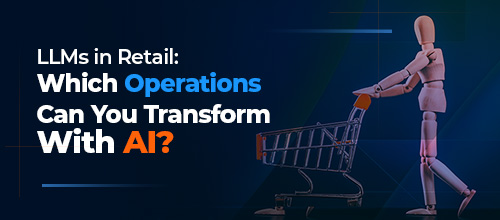Unleashing the Power of Service Mesh and API Management

Written by Harini Krishnamurthy
Content Writer
August 4, 2023
Introduction
In today’s rapidly evolving digital landscape, organizations face many challenges when managing complex microservices architectures and ensuring seamless connectivity between various components. To address these challenges, two powerful technologies have emerged as crucial enablers: Service Mesh and API Management. By harnessing the capabilities of these two solutions together, businesses can unlock a new level of efficiency, scalability, security, and observability. This blog post will explore how combining Service Mesh and API Management can empower organizations to build robust and reliable systems.
Service Mesh: Enabling Seamless Microservices Communication
A service mesh is a dedicated infrastructure layer facilitating communication and interaction between microservices within a distributed system. It provides robust features for service discovery, traffic management, load balancing, security, observability, and more. Service meshes, such as Istio, Linkerd, and Consul Connect, are typically implemented as lightweight network proxies, also known as sidecars, deployed alongside individual microservices.
Service Mesh Benefits
- Service-to-Service Communication: Service Mesh enables seamless and secure communication between microservices, allowing them to interact with each other efficiently.
- Traffic Management: With Service Mesh, traffic routing, load balancing, and fault tolerance can be handled automatically, ensuring optimal resource utilization and improving application performance.
- Security and Authentication: Service Mesh provides built-in security features like mTLS (Mutual Transport Layer Security), authentication, and authorization, which help protect services from unauthorized access and data breaches.
- Observability: Service Mesh offers comprehensive monitoring and observability capabilities, including metrics, logging, and distributed tracing, which are essential for troubleshooting, debugging, and performance optimization.
API Management: The Gateway to Success
On the other hand, API Management serves as the gateway for managing, securing, and distributing APIs to consumers. It enables organizations to expose their services as APIs, control access, enforce security policies, and monitor usage patterns. API Management platforms offer a range of functionalities, such as rate limiting, authentication, authorization, caching, and analytics, which are essential for building scalable and secure APIs.
Want to learn about Universal API Management? -> Read Our Blog Now!
API Management Benefits
- API Gateway: API Management platforms typically include an API Gateway component, which acts as a single-entry point for API traffic. It handles authentication, rate limiting, caching, and request/response transformations, ensuring high performance and security.
- Developer Portal: API Management solutions offer developer portals, allowing API consumers to discover APIs, access documentation, and obtain API keys. This enhances developer experience and encourages API adoption.
- Security and Access Control: API Management platforms provide security features like OAuth, JWT (JSON Web Tokens), and API key-based authentication to protect APIs from unauthorized access and secure data transmission.
- Analytics and Monetization: API Management platforms offer analytics and reporting capabilities to monitor API usage, track performance, and gain insights into API usage patterns. Additionally, organizations can monetize APIs by implementing billing and pricing models.
Watch our on-demand webinar, where our MuleSoft experts discuss achieving Universal API Management to manage and govern APIs with the Anypoint Platform.
The Synergy Between Service Mesh and API Management
When Service Mesh and API Management work together, they create a dynamic duo that comprehensively addresses the challenges associated with microservices architecture. Here’s how they complement each other:
- Connectivity and Communication: Service Mesh provides a reliable and resilient communication layer, ensuring that services interact seamlessly. API Management is a gateway for external consumers to access these services securely. Together, they enable end-to-end connectivity and smooth data flow within the system.
- Security: Service Mesh handles security at the inter-service level by encrypting traffic, enforcing access controls, and providing mutual TLS authentication. API Management, on the other hand, focuses on securing external access to services through authentication, authorization, and threat protection mechanisms. Combining both technologies creates a multi-layered security framework, safeguarding the system from potential threats.
- Scalability: Service Mesh offers load balancing, circuit breaking, and automatic retries, ensuring that services can scale seamlessly. API Management provides features like rate limiting and caching to manage incoming API requests efficiently. By leveraging these capabilities, organizations can handle high traffic volumes and achieve better scalability across their microservices ecosystem.
- Observability: Service Mesh offers advanced observability features, such as distributed tracing and metrics collection, enabling organizations to gain insights into the behavior and performance of their microservices. API Management platforms offer analytics and monitoring capabilities to track API usage, detect anomalies, and optimize performance. By combining these observability features, organizations can gain comprehensive visibility into the entire system, identify bottlenecks, and make data-driven decisions for optimization.
- Reliability: Service Mesh provides fault tolerance mechanisms, including service retries, circuit-breaking, and timeouts, to ensure the overall reliability of the system. API Management platforms offer features like health checks and monitoring to detect service failures and route requests accordingly. Together, they enhance system resilience and improve overall reliability.
Summary
In today’s interconnected and distributed systems, Service Mesh and API Management are pivotal in ensuring seamless connectivity, scalability, security, and observability. By leveraging the combined power of these technologies, organizations can navigate the complexities of microservices architectures more efficiently and build robust and reliable systems. The synergy between Service Mesh and API Management enables businesses to focus on delivering exceptional user experiences while abstracting away the intricacies of networking and API management. Embracing this dynamic duo is the key to unleashing the full potential of your microservices ecosystem and staying ahead in the digital race.
Royal Cyber: Your Partner in Harnessing Service Mesh and API Management
As organizations seek to navigate the evolving technology landscape, partnering with an experienced provider like Royal Cyber can ensure a smooth transition to this powerful combination of service mesh and API management. Together, they unlock the potential for organizations to thrive in the age of interconnectedness and deliver exceptional experiences to their customers and partners.
Royal Cyber stands out as a trusted technology solutions provider when navigating the complexities of service mesh and API management. With their deep expertise in building scalable and resilient architectures, Royal Cyber offers end-to-end consulting, implementation, and support services to help organizations unlock the full potential of these technologies. For more information, you can email us at [email protected] or visit www.royalcyber.com.



